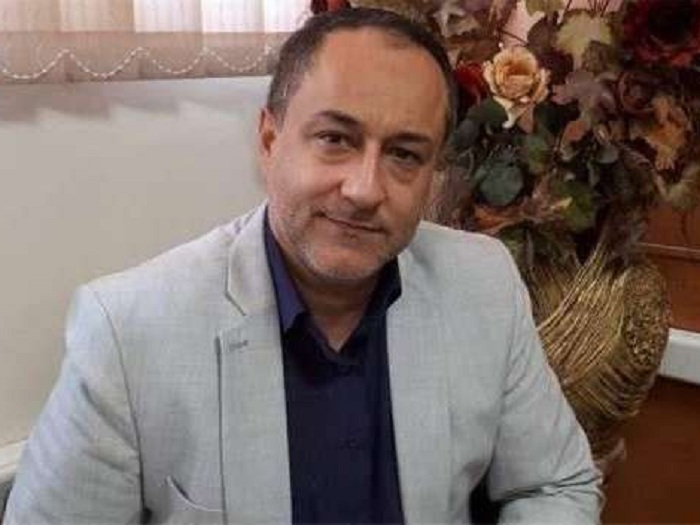Governing role of the High Council of Mines

Executive Director and Secretary of the Coordinating Council for the Resettlement, Activation and Development of Small Scale Mines: The authority for the closure or activation of the mine is in the sovereignty of the mine. Given that the judiciary has a representative, so its decisions are valid and can have a court order.
According to the International Stone Exhibition of Iran, the High Council of Mines, which started in 1962, is composed of eleven representatives from the public and private sectors.
It has a sovereign and decisive role and its tasks are specifically outlined in the Mines Act. Since the High Council of Mines has the capacity to develop and improve the state of mines in the country, it can be focused on.
Importance in the Council Thinking Room
Bahram Shakouri, chairman of the Iran Chamber of Commerce's Mines and Minerals Commission, which was elected as the chamber's representative to the Supreme Council of Mines by Gholamhossein Shafi'i, chairman of the Iranian Chamber of Commerce, Industries, Mines and Agriculture about a month ago, said: Policy in the field of mining. In fact, it plays the role of governing and resolving the problems of the mine, and when the dispute arises between the mining sector and the miners and licensees.
He emphasized: The principle of the mission of the Supreme Council is mining policy making in the field of mining.
Referring to the presence of private sector representatives in the council, he said: "Two representatives from the House of Mines and the Chamber of Commerce have been serving as private representatives for two years, along with nine government representatives from the Geological Survey, the Deputy Minerals, Natural Resources, and the Judiciary." And the legislature is helping to mine policy.
"The private sector can strengthen the council so that it can make the right and optimal decisions in mineral cases," he said.
Shakuri, referring to the importance of the working group and the role of the council in policymaking in the field of mining, said: "There is a working group in the council where all decisions are made. These decisions will be referred to the Council for expert consideration after being reviewed. The importance of group work comes from the fact that expert work, policy making, and review of referrals actually take place there.
He said about the differences between the working group and the council: "The members of the Supreme Council of Mines are examining the mineral records to do expert work." In fact, the council is policy-making and discussing the issues being discussed, but the working group is the think tank for the council's preparatory work.
Referring to the role of the council in policymaking and what is happening in practice, he said, the task of the council is to eliminate the concerns of the miners and pave the way for the development of the country, but what is actually happening is very satisfying for the miners. does not. Because policymaking should be done with the private sector in mind, but the private sector does not always have the vote. Of course the status of the council is better than other centers because we have seen some places that do not even consult the private sector, but there are at least two representatives of the private sector in the council.
He continued: The main dissatisfaction of private sector activists is that they lack much intellectual help in decision-making. However, what can help mine development is benefiting from the expertise of the private sector.
A decisive role
Sayed Reza Azimi, executive director and secretary of the Small Scale Mines Redevelopment Coordination Council on the importance of the High Council of Mines in the country, said that the council is composed of all the miners involved in the country, who is the senior official of the ministry (deputy head of mines). And Mining Industries (Secretary of the Council), a representative of the Judiciary, a representative of the Mining Engineering Organization, a representative of the Geological Survey, and a representative of the private sector including the mining house and chamber of commerce, to make the right decisions regarding the mining sector.
Azimi stated about the Council's function: The Council's decisions and powers have been enacted by law and are set out in the guidelines. Decisions relating to the country's mining sector, decisions that are being finalized, or issues related to the miners' disqualification are all summarized and reviewed by a senior ministry official or secretary.
The executive director and secretary of the Coal Mining Rescue Planning, Activation and Development Coalition Council on whether the council has a court ruling said: "Because the judiciary is a member of the council, judicial decisions are also included in those decisions." The authority for the closure or activation of the mine is vested in the sovereignty of the mine, that council. Given that the judiciary has a representative, so its decisions are valid and can have a court order.
Answering the question of what is the function of the Interaction Working Group, he said: They also include environmental and natural resources representatives and play a role in policy making related to natural and environmental resources.
He talks about the recent signing of a Memorandum of Understanding between the Judiciary and the Ministry of Industry, Mining and Trade on the establishment of Dispute Resolution Boards in the Industrial, Mining and Trade Centers at the Ministry of Industry, Mining and Trade. He said the agreement was only for arbitration or arbitration cases related to the mining sector that could use the jurisdiction. Because some mining-related disputes have their own set of requirements, officials must also act in a manner that is not contrary to law.
About the decision-making role of the High Council of Mines, he said: "It is a decision-making council and it is not purely consultative." The study explores all areas of exploitation, privacy, differences, and macro policy making with a distinct mix of eleven.










